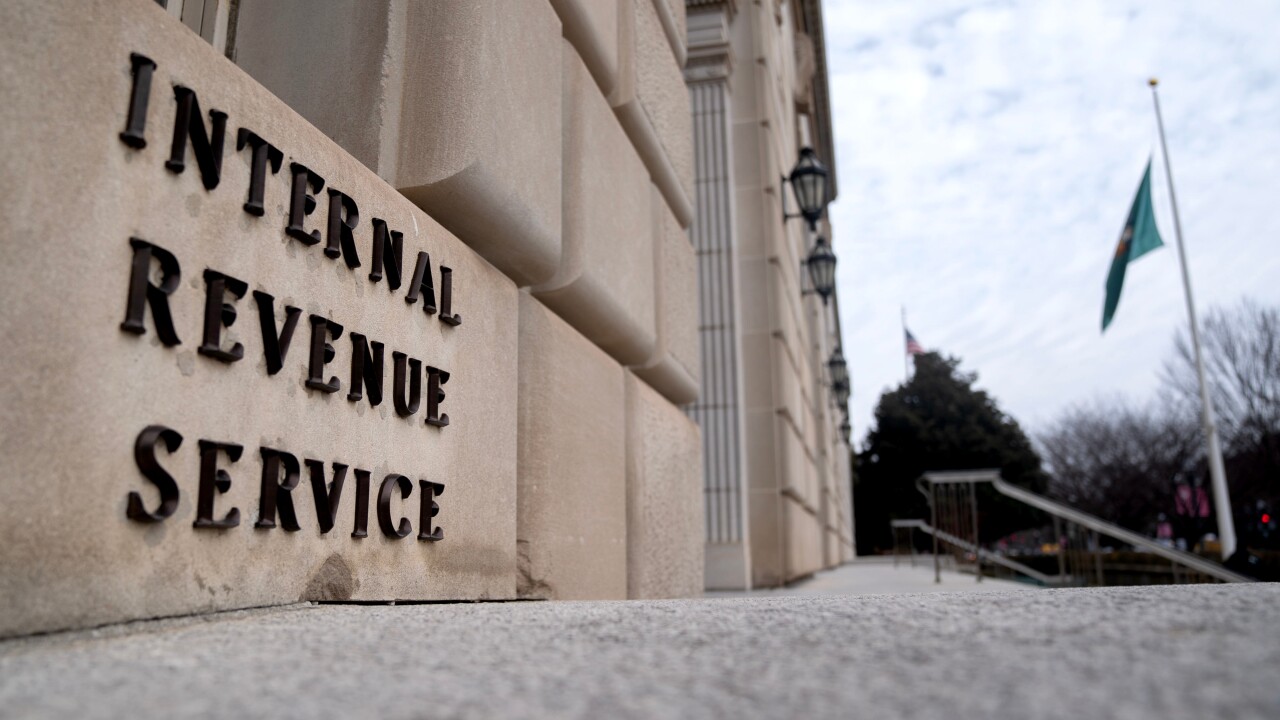A pair of senators, Sheldon Whitehouse, D-Rhode Island, and Roger Wicker, R-Mississippi, introduced bipartisan legislation Monday to put more responsibility on accountants and other financial professionals to safeguard against money laundering and other crimes.
The
This bill would expand the definition of a financial institution for purposes of reporting suspicious transactions, anti-money laundering programs and other related measures to include CPAs and public accounting firms; people who provide investment advice for compensation; people who trade in works of art, antiques or collectibles; attorneys, law firms, or notaries involved in financial or related activity on behalf of another person; certain trusts and company service providers; people engaged in the business of public relations, marketing, communications or other similar services in such a manner as to provide another person anonymity or deniability; and people engaged in the business of providing third-party payment services.
Under the bill, the Treasury Department's Financial Crimes Enforcement Network would have to establish a task force to develop a strategy to impose anti-money laundering safeguards and enforce requirements on those professions. Domestic title insurance companies would also have to obtain, maintain and report to the Treasury information on the beneficial owners of entities that purchase or sell residential or commercial real estate in transactions involving the domestic title insurance company.
"America is in a clash of civilizations, and on the other side are international kleptocrats and criminals who exploit our laws and financial system right under our nose," Whitehouse said in a statement Monday. "We must prevent adversaries from hiding loot within our borders. This bipartisan measure would require basic transparency in a number of professions that bad actors seek out to hide their ill-gotten gains. We already expect that kind of transparency from many institutions, like our banking system. I'm pleased we've arrived at a sensible, bipartisan solution to address this threat."

He and Wicker pointed to how oligarchs in Russian President Vladimir Putin's regime have stowed enormous amounts of money in outside countries like the U.S., employing complicated financial transactions and shell corporations that wouldn't be possible without help from Western professionals, including some Americans. Journalistic investigations such as the
"Vladimir Putin's barbaric invasion of Ukraine has exposed the deep reach of oligarchs and kleptocrats who have used their wealth and influence to drive global conflict," Wicker said in a statement. "The United States should be doing everything within reason to root out this corruption and keep foreign bad actors from exploiting our financial system. This legislation would put that abuse in the crosshairs by requiring greater transparency in certain industries to help protect our country."
A group of financial transparency organizations, including Global Financial Integrity, Transparency International U.S., the Anti-Corruption Data Collective, and the FACT Coalition — discussed the progress made so far in the U.S. to close money laundering loopholes and the new ENABLERS Act, as well as how kleptocrats and Russian oligarchs are continuing to hide their assets in the U.S., during a
The U.S. still has more progress to make in this area. According to a
"In the popular imagination, the money laundering capitals of the world are small countries with histories of loose and secretive financial laws," said Treasury Secretary Janet Yellen during a speech last December. "But there's a good argument that, right now, the best place to hide and launder ill-gotten gains is actually the United States. And that's because of the way we allow people to establish shell companies."





